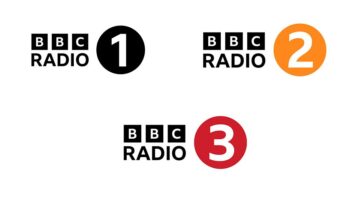Special events are great for radio stations to cover, but sometimes can alienate existing listeners. A growing trend is to run short-term additional radio stations on digital platforms, and use the existing analog station to promote them.

Country music is not a major music genre in the UK, but to coincide with the UK�s biggest country music festival, BBC Radio 2 operated an additional pop-up radio station for just four days, called �BBC Radio 2 Country.� BBC Radio 2 carries country music programming as a specialist show in the evening, and this was an opportunity to expand the station�s country music coverage.
The station was carried on the BBC�s national DAB Digital Radio multiplex, which carries a number of radio stations. DAB allows broadcasters to vary the bitrate given to individual stations and to launch additional stations, which normally appear automatically on DAB receiver station lists.
By careful planning, the BBC was able to �borrow� a certain amount of bitrate from its other radio stations, and use that bitrate (normally at least 64kbps) to add �BBC Radio 2 Country� as an additional service. The station was also available online, using spare capacity within the BBC�s encoding farm.
Brett Spencer, Digital Editor for Popular Music Networks at the BBC, says that it is particularly effective at promoting new digital platforms to Radio 2�s older audience. �It�s been reported that sales of DAB receivers go up during the previous week by almost 10%. Audiences love it. The feedback we get is overwhelmingly positive, and there�s lots of it.�

�We spend a great deal of time on Radio 2 in the build-up to the station explaining how to tune in. What always takes me by surprise when we start broadcasting is the amount of people who send us photographs of their radio sets tuned in to Radio 2 Country. We never ask them to, but every single year we get lots.�
Cross-promotion from the main Radio 2 station, which has 15m weekly listeners, is crucial to the station�s success, Brett Spencer says. Radio 2 promotes a choice of listening on every hour, and also has a three-hour simulcast.
BBC Radio 2 Country was a combination of live and pre-recorded content. Content partially came from Wogan House (the station�s home, next to Broadcasting House in London); and partially as an outside broadcast from the O2, the festival venue which is around 10 miles from the BBC�s studios.
�We find a spare studio in Wogan House and run the entire radio station from that studio,� Dave Walters told me by email. As Head of Product Systems and Services for TV, Radio and Archive in the BBC�s Design and Engineering department, Dave oversees BBC Radio�s broadcasting facilities. �When the station�s live, people sit in the studio; and when it�s pre-recorded, the playout system takes over, the faders are left open and we lock the door. As a standalone studio acting as one whole station, this is a simple and effective solution.�
Audio from the O2 was treated as a standard outside broadcast. �We deploy IP Sat links and the O2�s own internet connections for feeds back to Wogan House. We also have a mobile broadband solution, which uses 3G and 4G connections, as a backup. Everything is IP these days.�
This was the third year for BBC Radio 2 Country.
�We�ve learnt that a single studio is a very simple way to run a simple radio station like this,� said Dave Walters. �That said, it�s hard to change anything once it�s live. So if a band comes into play, there�s no off-air configuration time.�
While running a station out of one studio is low-cost, �it comes with some risk. If we break it, we need to fix it live, or look for another studio,� Dave Walters added.
�From a technical point of view, we�ve learnt of the benefit of building additional capacity into our radio routing and broadcasting capabilities. It�s a very mature infrastructure. However, from a metadata point of view, we are less agile, and some systems have to be hand-cranked to match what the audience is used to on other services. That, of course, is part of the challenge.�
Brett Spencer adds that �for the team, it�s a lot of fun. All kinds of people all suddenly come together to provide an event, and a few days later, it�s all over. And the audience love it: it provides an intense period of a rich genre that they enjoy. On social media, this station beats all the other the BBC runs during the four days it�s on.�
�
�










